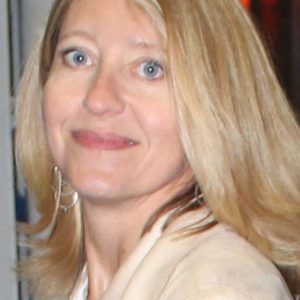At Royal Philips Electronics, heading a $9 billion market is apparently not quite enough responsibility for one executive. The organization’s matrix management structure gives regional CEOs an additional role in one of its three global sectors: healthcare, lighting and consumer lifestyle. For Scott M. Weisenhoff that translates to wearing two hats at the company: CEO of Philips Electronics North America and executive vice president of Philips Healthcare.
“It’s efficient,” says Weisenhoff of the dual role. “If you’re only on the corporate side or only on a business side you can get aggressively balanced toward one end of the spectrum. Having perspective gives you more credibility when you’re dealing with the business people, and keeps you thinking as you’re making decisions about what you need to share and what you should do separately.”
Weisenhoff would know. He’s been with the Netherlands-based tech giant for 25 years, holding a variety of posts in
Shortly after Weisenhoff took the helm of Philips North America in July of 2008 the company relocated its
In fact, thanks to something of a spending spree – Philips invested $10 billion in more than 15
In healthcare, for example, Philips picked up Lifeline Systems, which makes transmitters that can summon help if a client falls or needs assistance; Respironics, a maker of medical equipment used in the home, and Raytel Cardiac Services, a provider of home cardiac monitoring services. The buys were inspired by both population trends and an interest in rounding out Philips’s healthcare offerings. “The world’s population is aging tremendously,” says Weisenhoff. “By 2050 the World Health Organization says there will be more than 1 billion people over the age of 60. We’re looking at how to take care of a patient throughout the whole cycle of care – and that includes, very heavily, care in the home.”
While healthcare is Philips’s largest business division, the company is more widely known for its lighting products. There, too, Philips pursued growth through acquisitions with the purchase of NA Luminaires manufacturer Genlyte Group, which strengthened its presence in “green” lighting with fluorescent and next-generation light-emitting diode (LED) light bulbs and greater access to
Weisenhoff’s biggest challenge may be in “consumer lifestyle,” the division formerly known as consumer electronics – and the weakest link in Philips’
In April 2008, the company licensed its brand and technology to Funai Electric Co., which will assume responsibility for sourcing, distribution, marketing and sales of its television products in the
“It’s great for us,” says Weisenhoff. “We get royalty streams, leave the distribution to Funai and still keep the Philips name out there.”
The deal also sums up Philips’s overarching strategy for the future. “We got rid of things that would be better off elsewhere and we continue to focus on investing in growth – whether that be through the $2 billion we spend annually on global R&D or on external acquisitions,” says Weisenhoff.
“We’re not stopping M&A because of the current climate,” he adds. “We continue to look at the pipeline for opportunities that are a good fit for us in the
Chief Executive Group exists to improve the performance of U.S. CEOs, senior executives and public-company directors, helping you grow your companies, build your communities and strengthen society. Learn more at chiefexecutivegroup.com.
0

1:00 - 5:00 pm
Over 70% of Executives Surveyed Agree: Many Strategic Planning Efforts Lack Systematic Approach Tips for Enhancing Your Strategic Planning Process
Executives expressed frustration with their current strategic planning process. Issues include:
Steve Rutan and Denise Harrison have put together an afternoon workshop that will provide the tools you need to address these concerns. They have worked with hundreds of executives to develop a systematic approach that will enable your team to make better decisions during strategic planning. Steve and Denise will walk you through exercises for prioritizing your lists and steps that will reset and reinvigorate your process. This will be a hands-on workshop that will enable you to think about your business as you use the tools that are being presented. If you are ready for a Strategic Planning tune-up, select this workshop in your registration form. The additional fee of $695 will be added to your total.

2:00 - 5:00 pm
Female leaders face the same issues all leaders do, but they often face additional challenges too. In this peer session, we will facilitate a discussion of best practices and how to overcome common barriers to help women leaders be more effective within and outside their organizations.
Limited space available.

10:30 - 5:00 pm
General’s Retreat at Hermitage Golf Course
Sponsored by UBS
General’s Retreat, built in 1986 with architect Gary Roger Baird, has been voted the “Best Golf Course in Nashville” and is a “must play” when visiting the Nashville, Tennessee area. With the beautiful setting along the Cumberland River, golfers of all capabilities will thoroughly enjoy the golf, scenery and hospitality.
The golf outing fee includes transportation to and from the hotel, greens/cart fees, use of practice facilities, and boxed lunch. The bus will leave the hotel at 10:30 am for a noon shotgun start and return to the hotel after the cocktail reception following the completion of the round.